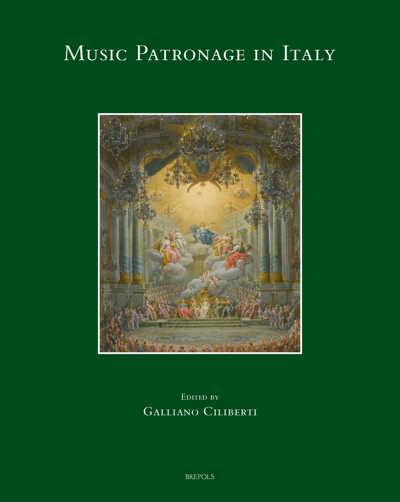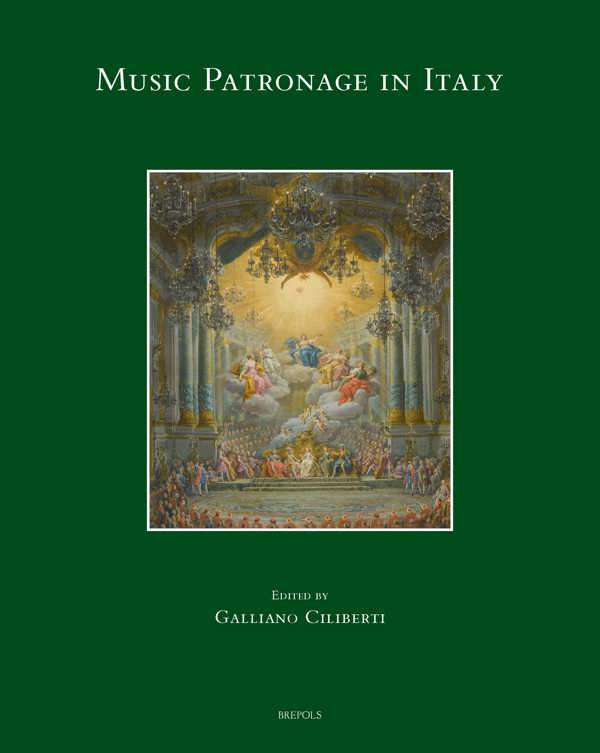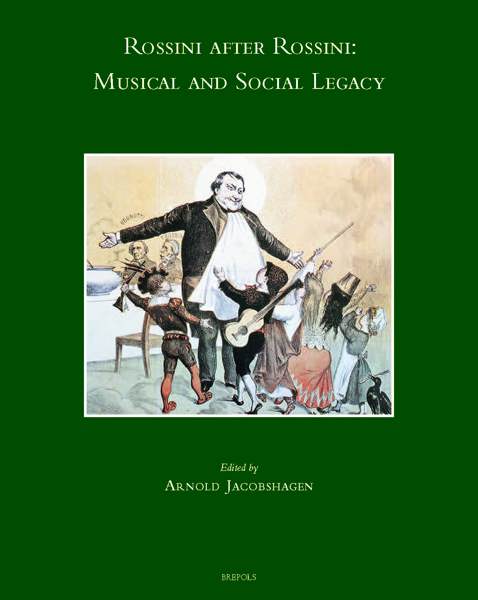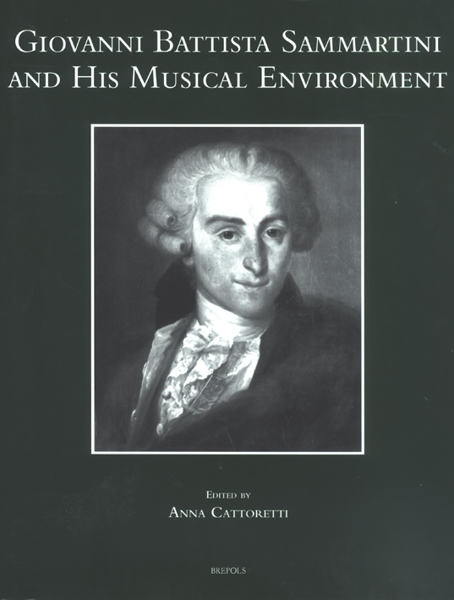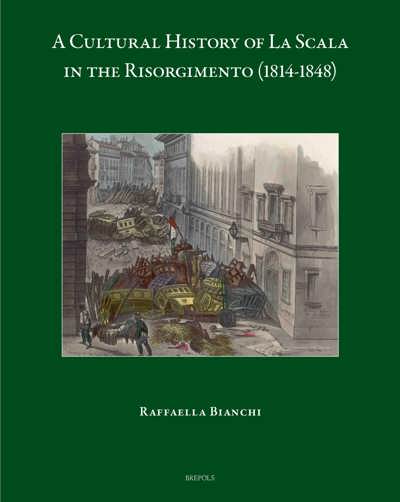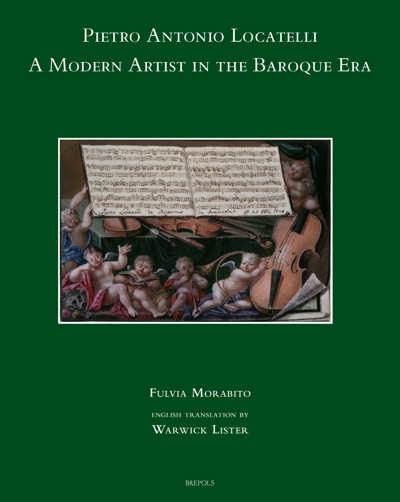
Music Patronage in Italy
Galliano Ciliberti (ed)
- Pages: xviii + 491 p.
- Size:210 x 270 mm
- Illustrations:25 b/w
- Language(s):English, Italian
- Publication Year:2021
- € 125,00 EXCL. VAT RETAIL PRICE
- € 65,00 EXCL. VAT DISCOUNT PRICE VALID UNTIL 30 Jun 2026
- ISBN: 978-2-503-59544-3
- Hardback
- Available
This book focuses on the various aspects of music patronage in Italy from the fifteenth to the eighteenth century
“Each of the essays in this volume certainly serves a useful purpose in illuminating topics often on the edges of mainstream music-historical enquiry for this period.” (Tim Carter, in Music & Letters, 14/02/2024, p. 127)
GALLIANO CILIBERTI is professor of Music History at the Conservatory ‘Nino Rota’ of Monopoli. He graduated from the University of Perugia and obtained a Doctorate in Musicology from the University of Liège and a Post-Doctoral degree from the École Pratique des Hautes Études in Paris.
During the Renaissance and throughout the Baroque and Classical periods, musical production was linked to patronage. There are essentially two types of patronage. The first relates to political institutions, to public life, and aims to promote musical events that highlight the wealth and power of the patron in the eyes of rival courts and subjects – hence the birth of the court chapels. The second type belongs to the private sphere, in which the patron, of noble birth and as such in possession of high moral and intellectual virtues, has a discriminating artistic sensibility — hence the promotion of chamber music activities, the collecting of rare and valuable musical instruments, and the compilation and collection of musical manuscripts, possibly in deluxe or personalized copies. This musical production system lasted until the middle of the nineteenth century, when the advent of capitalism and the rise of the bourgeois class caused the decline of patronage. This book focuses on the various aspects of music patronage in Italy from the fifteenth to the eighteenth century.
Galliano Ciliberti, Preface
Patronage as an Historiographical Problem
Reinhard Strohm, Hosting Foreigners – and the History of Italian Music
Iain Fenlon, Private, Princely, and Collective Patronage in Sixteenth-Century Italy
Patronage, Diplomacy and Power Relationships in Rome
Thomas Neal, Printing and Patronage in Early Modern Rome: The Early Publications of Giovanni Pierluigi 'da Palestrina’
Michela Berti – Émilie Corswarem, «Capitale del Mondo […] onorata da Nazioni straniere». Il particolare mecenatismo nelle chiese nazionali di Roma
Galliano Ciliberti, «Les Goûts réunis». Diplomazia e mecenatismo musicale a Roma nel Seicento: il caso della Francia
Patronage, Diplomacy and Power Relationships in Venice
Gabriele Taschetti, Marcantonio De Dominis: A Patron manqué for Tomaso Cecchini?
Adriana De Feo, Il casato di Hannover a Venezia e le scritture per Apostolo Zeno e Girolamo Frigimelica Roberti
Giovanni Tribuzio, «Or giunte siamo dove il principe nostro potremo vagheggiar». Tre serenate di D’Alessandro/Vivaldi, Carcani e Paradies/Galuppi
per Federico Cristiano di Sassonia (Venezia, Ospedali Grandi, 1740)
Musical Patrons and Italian Cultural Life
Cristina Cassia, Pietro Bembo and Music Patronage
Marcello Mazzetti – Livio Ticli, «I raggi della chiarissima casa gambaresca»: The Gambaras’ Music. Patronage and the Performance Practice in 15th-17th-Century Brescia
Nicolò Maccavino, Tipologie di mecenatismo e committenza musicale in alcune città del Val di Noto in Sicilia fra Cinque e Settecento
Annabelle M. Page, Patronage in Absentia: A Case Study of the Patronage of Marcus Sitticus (c. 1612-1619)
Maria Birbili, Music Patronage and Politics in the Early 19th Century: Rossini, the ‘Holy Alliance’, and the Use of autoimprestito as a Means of Ironic Distance
Manuscript Production and Music Publishing
Marina Toffetti, Music Publishing and Patronage in Milan in the First Thirty Years of the Seventeenth Century: An Overview
Angela Fiore, «Sotto l’ale protettrici dell’Aquile Coronate»: copisti stampatori e mecenatismo della corte estense
Abstracts and Biographies
Index of Names
